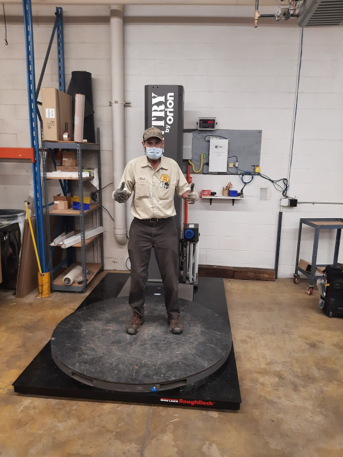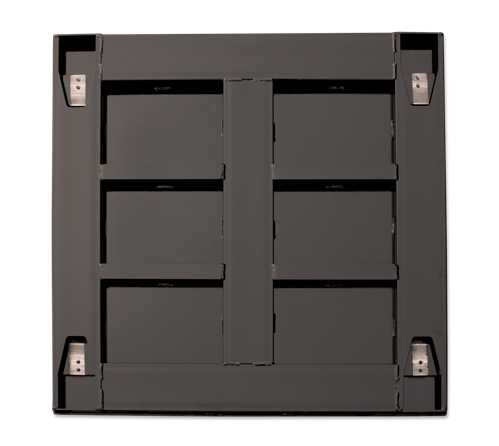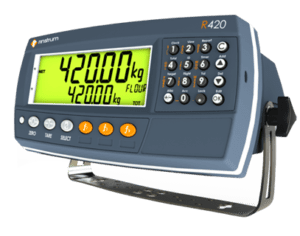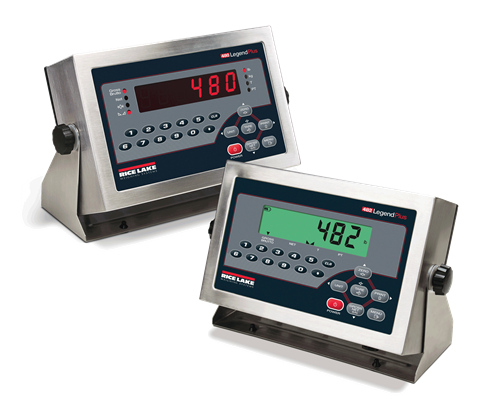Industrial floor scales are heavy-duty weighing systems designed to accurately measure the weight of large and heavy objects or materials. These scales are commonly used in industrial environments such as manufacturing facilities, warehouses, shipping centers, and distribution centers. They are designed to withstand rugged conditions and provide accurate weight measurements for a wide range of applications. Here are some key features and considerations when purchasing your next industrial floor scale:
Floor Scale Key Features:
- Heavy-Duty Construction: Industrial floor scales are built to handle heavy loads and withstand the demands of industrial environments. They are made from durable materials such as steel or stainless steel to ensure longevity.

- High Weight Capacity: These scales are capable of weighing very heavy loads, often ranging from several hundred kilograms to several tons, depending on the specific model.
- Large Weighing Surface: The platform of an industrial floor scale is spacious to accommodate large items or multiple smaller items at once. Most common floor scale dimensions or sizes are 4’x4′ and 5’x5′, larger sizes are available and custom sizes can be manufactured to meet our customers requirements.
- Accuracy: Despite their size, industrial floor scales provide accurate and reliable weight measurements. Many models come with advanced load cell technology to ensure precision.
- Easy Loading and Unloading: These scales often have ramps or a low-profile design to facilitate easy loading and unloading of items onto the platform.
- Multiple Units of Measurement: They typically offer a variety of measurement units, such as kilograms, pounds, tons, and more, to cater to various industries and regions.
- Digital Displays: Most industrial floor scales feature digital displays that provide clear weight readings for users.



- Connectivity: Some advanced models offer connectivity options, allowing data to be transmitted to other systems for tracking, analysis, or integration with warehouse management software. 4-20mA, RS-232, RS-485, Profinet etc. are just a small list of examples of communication options. Industrial Scale has the expertise and support to ensure our Industrial floor scales have the proper communication protocols to communicate with your external equipment.
- NTEP Certification: In some regions, industrial scales may need to be certified by regulatory bodies like the National Type Evaluation Program (NTEP) to ensure accuracy and compliance with legal requirements.
Considerations:
- Application: Consider the specific application for which you need the industrial floor scale. Whether it’s for weighing pallets, large machinery, bulk materials, or other items, the scale’s specifications may vary. If you are unsure of what floor scale will work best for your application, please contact Industrial Scale.

- Environment: Industrial settings can involve harsh conditions, including exposure to dust, moisture, and heavy traffic. Choose a scale that can withstand the environmental challenges of your facility. Industrial Scale has great hands on experience of which industrial floor scale is going to work best in your environment.

- Calibration and Maintenance: Regular calibration and maintenance are essential to ensure accurate readings over time. Some scales come with self-calibration features.
- Safety: Ensure that the scale is designed with safety features, such as overload protection, to prevent damage and accidents.
- Budget: Industrial floor scales can vary widely in terms of features and price. Consider your budget while selecting a scale that meets your needs.
- Vendor Support: Industrial Scale Inc continues to serve Wisconsin & Illinois. Their knowledge, expertise and customer support has become world recognized. Industrial Scale is trusted by some of the largest scale manufacturers in the world as their official repair center and customer support.
Industrial floor scales are essential tools for efficiently managing inventory, shipping, and quality control processes in various industries. When selecting a industrial floor scale, make sure to assess your specific requirements and choose a model that aligns with your needs and the demands of your industrial operations.







